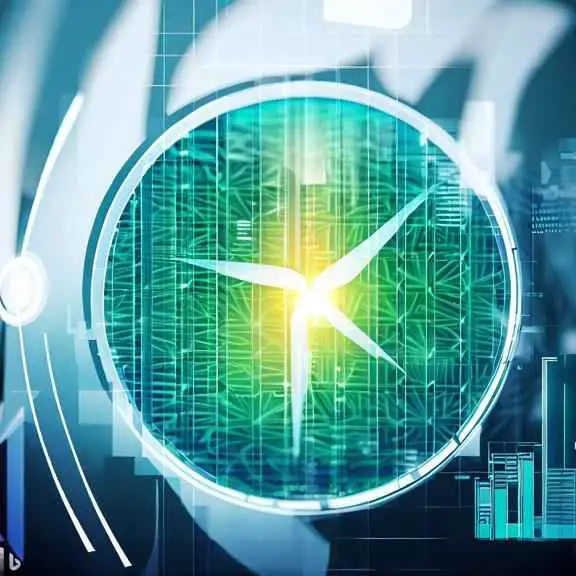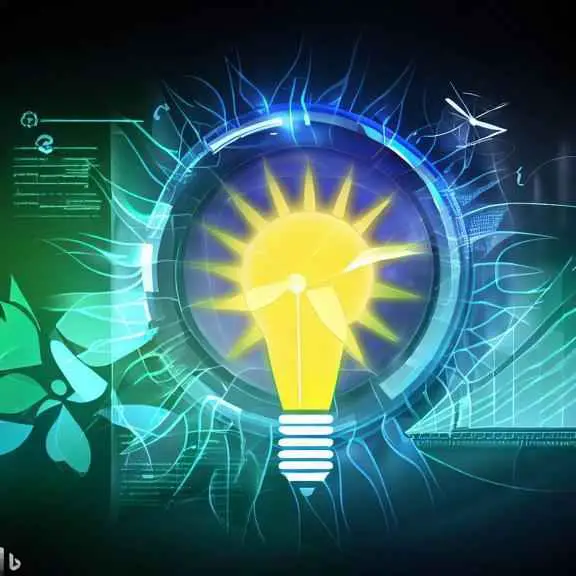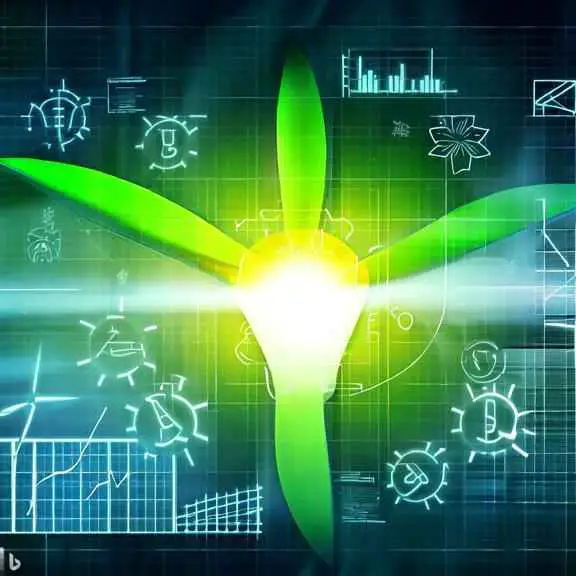Paragraph on
Renewable Energy
for all Class, Words
by Environment on
Renewable energy is becoming an increasingly popular choice for powering homes, businesses, and communities. Unlike fossil fuels, which can…, please continue reading.

Table of Content
Ad
The Paragraph on Renewable Energy
Ad

Questions about Renewable Energy
Ad
Renewable energy is becoming an increasingly popular choice for powering homes, businesses, and communities. Unlike fossil fuels, which can be depleted and are a significant contributor to greenhouse gas emissions, renewable energy sources are inexhaustible and generate little to no greenhouse gas emissions. Some of the most common renewable energy sources include solar, wind, hydro, and geothermal power.
Solar power is perhaps the most well-known form of renewable energy. Solar panels convert the sun’s energy into electricity that can be used to power homes and businesses. Wind power relies on wind turbines to generate electricity, while hydroelectric power uses water to turn turbines and produce electricity. Geothermal power relies on heat from the earth’s core to generate electricity.
One of the most significant advantages of renewable energy is that it is cost-effective in the long run. While it may require a significant upfront investment, the ongoing costs of generating renewable energy are relatively low. Additionally, renewable energy is an excellent way to reduce dependence on fossil fuels and lower greenhouse gas emissions, which can have a positive impact on the environment and the planet.
However, renewable energy also has a few drawbacks. For example, some forms of renewable energy, such as wind and solar power, are dependent on weather patterns and may not be as reliable as traditional sources. Additionally, retrofitting existing infrastructure to accommodate renewable energy sources can be expensive, and not all regions have access to the same types of renewable energy.
Overall, renewable energy has the potential to transform the way we power our world. With the technology continually improving and becoming more affordable, the use of renewable energy is becoming a more realistic and practical alternative to fossil fuels.
- What is renewable energy?
Renewable energy refers to the energy sources that are replenished in a relatively short amount of time and are not likely to be depleted.
- What are some forms of renewable energy?
Some common forms of renewable energy include solar, wind, hydro, and geothermal power.
- What is solar power?
Solar power is the process of converting energy from the sun into electricity that can be used to power homes, businesses, and communities.
- How does wind power work?
Wind power relies on wind turbines to generate electricity.
- What is the advantage of using renewable energy?
Renewable energy is cost-effective in the long run and reduces dependence on fossil fuels.
- What is the disadvantage of using renewable energy?
Renewable energy is dependent on weather patterns and retrofitting existing infrastructure can be expensive.
- How can using renewable energy have a positive impact on the environment and the planet?
Renewable energy can lower greenhouse gas emissions and reduce dependence on fossil fuels, ultimately positively impacting the environment and the planet.
- What is geothermal power?
Geothermal power relies on heat from the earth’s core to generate electricity.
- What is hydroelectric power?
Hydroelectric power uses water to turn turbines and produce electricity.
- Is renewable energy becoming a more practical alternative to fossil fuels?
Yes, as the technology continues to improve and become more affordable, renewable energy is becoming a more practical alternative to fossil fuels.

Vocabulary related to Renewable Energy
Ad
Vocabulary words:
- Inexhaustible - (adjective) Definition: unable to be used up or depleted. Usage: Renewable energy sources are inexhaustible, unlike fossil fuels that can be depleted. Synonyms: limitless, abundant. Antonyms: finite, limited.
- Greenhouse gas - (noun) Definition: a gas that traps heat in the earth’s atmosphere, contributing to global warming. Usage: Fossil fuels are a significant contributor to greenhouse gas emissions. Synonyms: carbon dioxide, methane. Antonyms: n/a.
- Solar panel - (noun) Definition: a panel that converts the sun’s energy into usable electricity. Usage: Solar panels are commonly used to power homes and businesses. Synonyms: solar cell, photovoltaic cell. Antonyms: n/a.
- Turbine - (noun) Definition: a machine that produces rotary motion. Usage: Turbines are used in hydroelectric and wind power to generate electricity. Synonyms: rotor, propeller. Antonyms: n/a.
- Infrastructure - (noun) Definition: the physical structures and facilities needed for the operation of a society or enterprise. Usage: Retrofitting existing infrastructure to accommodate renewable energy sources can be expensive. Synonyms: facilities, structures. Antonyms: disrepair, ruin.
- Practical - (adjective) Definition: likely to succeed or be effective in real-life situations. Usage: Renewable energy is becoming a more practical alternative to traditional sources. Synonyms: effective, realistic. Antonyms: impractical, unrealistic.
- Retrofitted - (verb) Definition: to modify equipment or machinery to enable it to function differently. Usage: Existing infrastructure often needs to be retrofitted to accommodate renewable energy sources. Synonyms: upgrade, remodel. Antonyms: leave unchanged.
- Replenished - (adjective) Definition: restored to its previous level or condition. Usage: Renewable energy sources are replenished in a relatively short amount of time. Synonyms: refilled, restored. Antonyms: depleted, emptied.
- Reliability - (noun) Definition: the quality of being dependable or trustworthy. Usage: Some forms of renewable energy, such as wind and solar power, can lack reliability due to weather patterns. Synonyms: trustworthiness, dependability. Antonyms: unreliability, undependability.
- Depletion - (noun) Definition: the act of using up or consuming something. Usage: Fossil fuels are subject to depletion as they are a finite resource. Synonyms: exhaustion, consumption. Antonyms: replenishment, abundance.

Structure of the sample "Renewable Energy" paragraph
Ad
Cohesion and coherence: The paragraph begins by defining renewable energy and listing some of the most common forms of renewable energy, such as solar, wind, hydro, and geothermal power. The use of each form of energy is briefly explained, as well as some of the advantages and disadvantages of renewable energy. The concluding sentence summarizes the potential impact of renewable energy and brings the paragraph’s main ideas together. The use of transition words, such as “however” and “overall,” help create coherence and guide the reader through the ideas presented.
